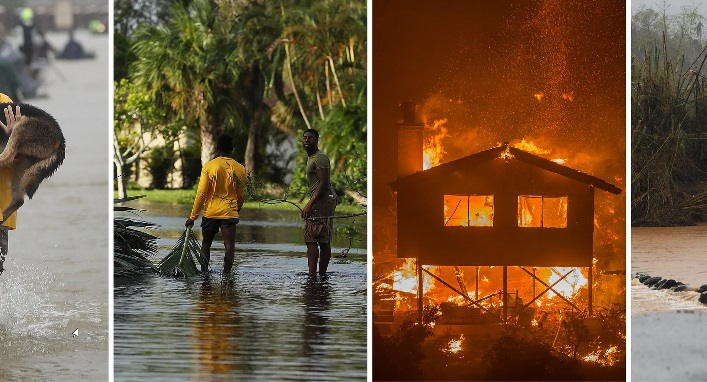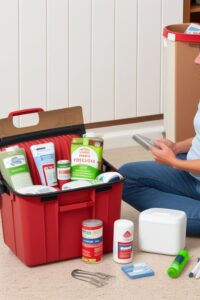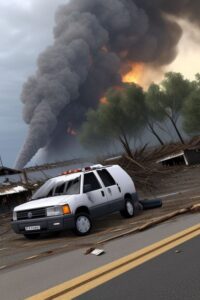

Unexpected natural calamities can leave communities vulnerable and individuals in utter chaos. It is crucial to be ready for such emergencies to ensure the safety and well-being of yourself and your loved ones. Whether it`s a hurricane , earthquake , forest fire, or deluge, taking proactive steps toward disaster preparedness can make a significant difference in your ability to handle the aftermath. Here`s a comprehensive guide to equip you for any natural disaster that may come your way.
1. Formulate an Effective Readiness Plan
Creating an extensively planned disaster preparedness plan lays the groundwork for your readiness endeavors. Involve your family or household members in developing the plan, discussing vital factors like evacuation routes, designated meeting points, and communication tactics. Assign roles and responsibilities to each individual to ensure everyone knows their tasks during a crisis.
2. Construct a Survival Pack
Compile an emergency kit that includes indispensable supplies to sustain you and your family for at least 72 hours. Your kit should comprise non-perishable food items, potable water, medication, first aid provisions, a flashlight, batteries, a multi-tool , a handheld radio, extra clothing, and hygiene products. Customize the kit based on your family`s specific requirements, including items for infants, elderly individuals, or pets.
3. Stay Updated
Stay updated about potential hazards and upcoming disasters by regularly monitoring local news, weather forecasts, and emergency alerts. Consider installing relevant mobile applications or subscribing to emergency notifications in your area. Familiarize yourself with the warning systems and signals used for different types of disasters, enabling you to respond promptly and efficiently.
4. Safeguard Your Residence
Take preventive measures to safeguard your home against potential damage. Strengthen windows and doors, secure heavy furniture and appliances, and install shutters or plywood to shield windows during storms. Regularly inspect your property for vulnerabilities and address them promptly. Evaluate appropriate insurance coverage options to protect your property and belongings.
5. Develop Evacuation Strategies
In certain situations, evacuating your home may become necessary for your safety. Identify primary and alternative evacuation routes, and devise contingency plans in case public transportation is unavailable. Ensure that everyone is aware of the evacuation plan and establish a communication method to stay connected with family members during the evacuation process.
6. Maintain Emergency Communication Channels
Effective communication is vital during a natural disaster . Establish an efficient communication network with family members, designating a common point of contact residing outside the affected area. This person can serve as a central hub for sharing information and updates. Additionally, maintain a list of important contacts, including local authorities, emergency services, and medical facilities.
7. Acquire Basic First Aid and Emergency Skills
Having basic knowledge of first aid and emergency skills can be invaluable during a natural disaster . Enroll in first aid and CPR courses to learn life-saving techniques. Familiarize yourself with proper methods for addressing injuries, treating wounds, and providing immediate assistance until professional help arrives.
8. Secure Vital Records
Make copies of crucial documents such as identification cards, passports, insurance policies, and medical records. Store these duplicates in a waterproof and fireproof container or upload them to a secure cloud storage service . Having duplicates ensures that vital information is readily available in case the originals are lost or damaged.
9. Conduct Regular Preparedness Exercises
Regularly conduct emergency drills with your family or household members to ensure everyone is familiar with the procedures and protocols. Practice evacuation routes, gather at designated meeting points, and simulate various scenarios to test your preparedness. These drills help identify any gaps in your plan and allow you to make necessary adjustments.
10. Remain Calm and Supportive
Maintaining composure and a supportive demeanor during a crisis is crucial. Panic can hinder your ability to make rational decisions. Stay informed, follow instructions from local authorities, and provide emotional support to your loved ones. Check on neighbors, especially those who may need assistance, and foster a sense of community to overcome the challenges posed by the disaster.
By implementing these preparedness measures, you can strengthen your resilience in the face of unforeseen catastrophes. Remember, being proactive and well-prepared significantly increases your chances of staying safe and minimizing the impact of these unexpected events.





